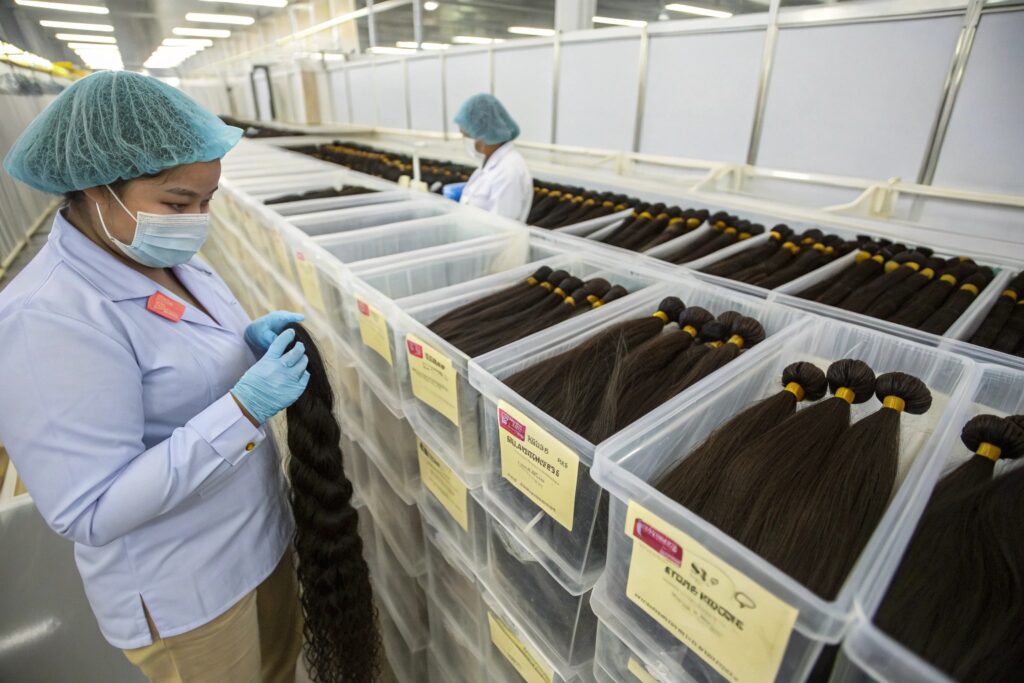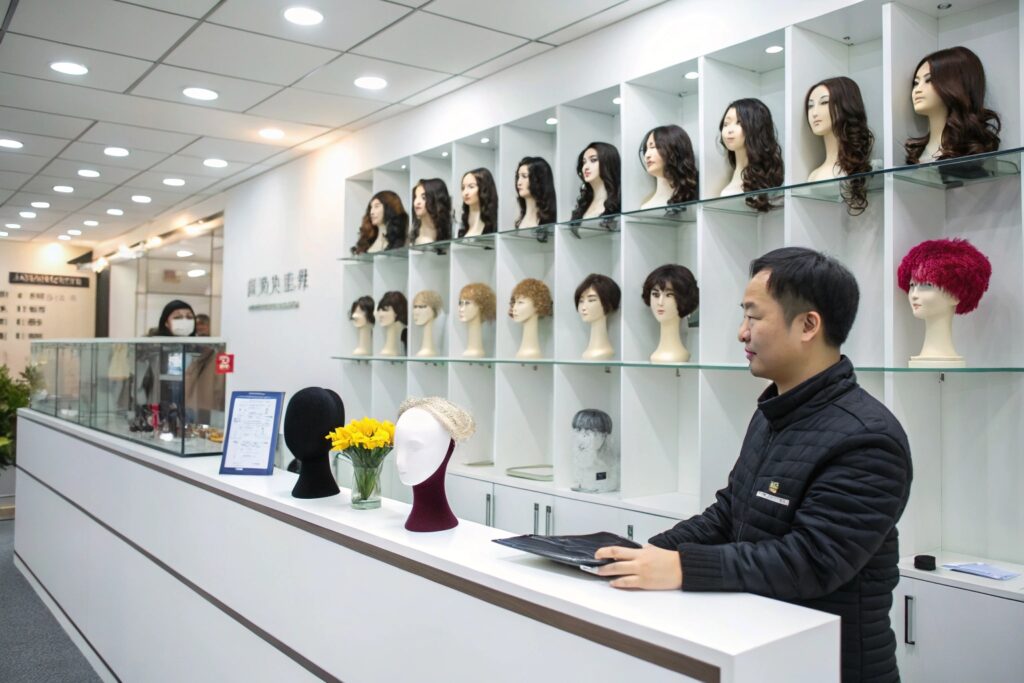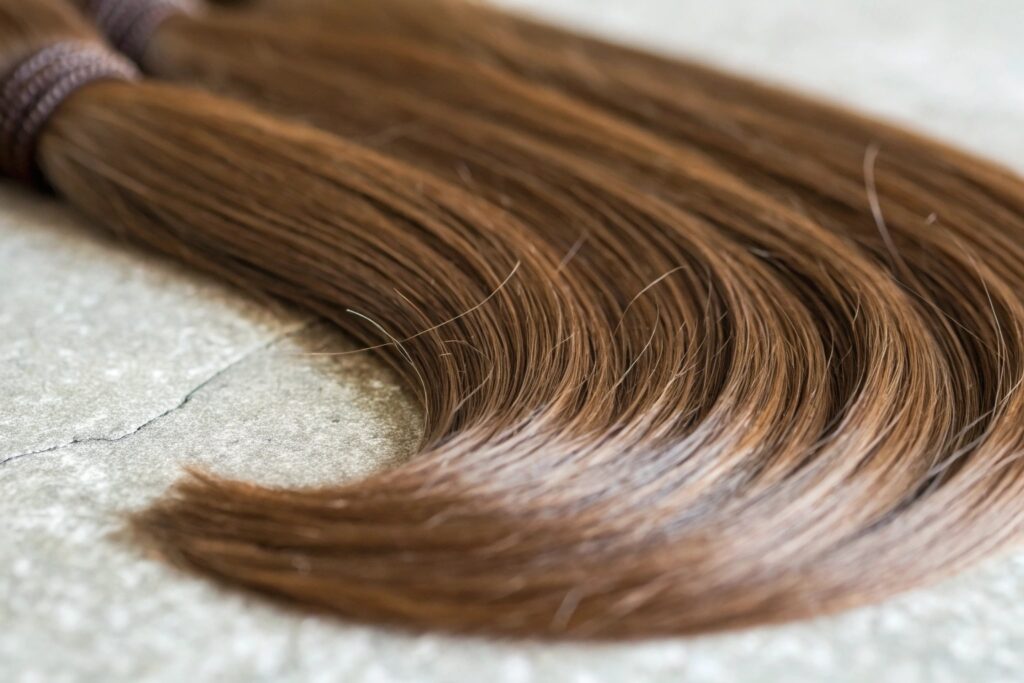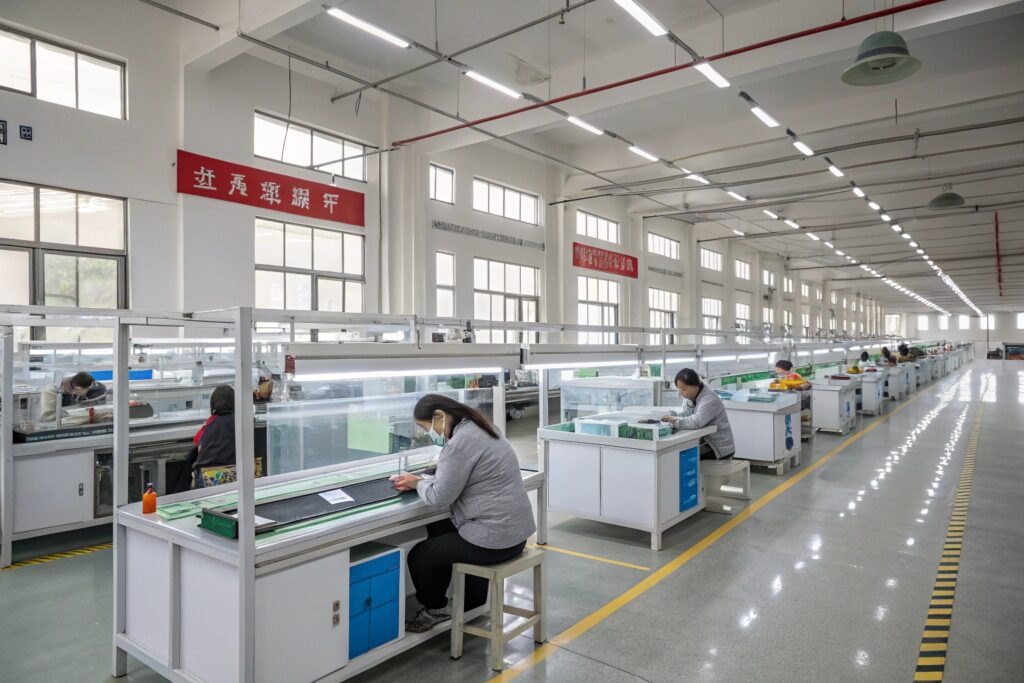China offers efficiency, affordability, and scale. But as global buyers, we also face pressure to guarantee ethics. From hairpins to wigs, our supply chains must be clean.
To ensure ethical production when sourcing from Chinese hair suppliers, buyers should verify factory audits, trace material origins, assess worker conditions, and collaborate with suppliers who value transparency.
At HairAcc, we’ve built long-term trust with clients not just because we’re fast—but because we show what’s behind the curtain: clean facilities, fair labor, and certified partners.
What does an ethical supply chain look like for hair?
When we say “ethical,” we’re talking about more than just avoiding sweatshops. It’s about respect for labor, materials, and customers. And for hair products—especially human hair—this becomes even more critical.
An ethical hair supply chain ensures transparent sourcing, safe working environments, legal labor practices, and accurate product representation.

Key Traits of an Ethical Hair Accessories Supply Chain
| Component | Ethical Practice Example | What It Means |
|---|---|---|
| Labor | No forced or child labor | Workers are paid and protected |
| Materials | Sourced legally and responsibly | No black market or unsafe inputs |
| Working Conditions | Certified factory with PPE and ventilation | Safe environment for workers |
| Transparency | Open to audits, photo tours, certifications | Nothing hidden or falsified |
| Labeling | Truth in material claims | Faux = faux, silk = silk, Remy = Remy |
At HairAcc, we offer BSCI audit reports, material test results, and allow video inspection of our partner facilities—from metal press shops to hand-sewing stations.
What Ethical Red Flags Should You Avoid?
- Factories refusing to share photos or location
- No business license or ownership trace
- Unrealistically low prices (often means labor shortcuts)
- Mislabeling plastic as metal or fake silk as “mulberry”
We recommend running a basic supplier background check, or working through verified factory partners like us.
Is the wig industry ethical?
The wig market is booming, but headlines about unethical sourcing—especially in human hair—raise serious buyer concerns.
The wig industry is not inherently unethical, but it includes risks of human hair trafficking, labor exploitation, and material misrepresentation—making supplier vetting essential.

Why Is Wig Sourcing More Sensitive?
Human hair is a personal material. Ethical wig supply must answer:
- Where does the hair come from?
- Was it sold voluntarily?
- Was the donor compensated?
- Is it processed under fair labor?
Many low-cost suppliers cannot answer these questions clearly.
HairAcc focuses on synthetic and fashion-oriented hair accessories—not wigs—but our partners who handle human hair follow these protocols:
| Ethical Checkpoint | Importance |
|---|---|
| Source Documentation | Track collection by batch |
| Hair Collection Consent | Signed agreement from donors |
| Fair Payment Confirmation | Donors are paid per standard |
| Factory Audit | SMETA or BSCI preferred |
How to Choose Ethical Wig Vendors?
- Ask for supplier's source region (India, Myanmar, China)
- Request donor documentation and compensation policy
- Prefer vendors with GRS or fair trade affiliation
Ethical wig vendors are usually not the cheapest. But they are the ones that will protect your brand reputation long-term.
Who is the best wholesale hair vendor in China?
Buyers looking for hair accessories, wigs, or synthetic fashion items want not just price—but reliability, customization, and verified practices.
The best wholesale hair vendors in China are those who combine product variety, customization, ethical production, and transparent service—like HairAcc for accessories or Xuchang-based specialists for wigs.

How to Judge a "Best" Vendor?
| Evaluation Area | What to Look For |
|---|---|
| Product Capability | Range of SKUs, ability to customize |
| Ethical Transparency | Audit reports, open factory info |
| Communication | Speed, clarity, order tracking |
| Delivery Experience | DDP options, Amazon prep, barcoding |
| Repeat Clients | Shows long-term trust |
At HairAcc, we specialize in:
- Hair clips, ties, and bands
- Private label and low MOQ
- Certified QC, packaging, logistics
If you’re sourcing wigs or bundles, Xuchang (Henan Province) remains the leading hub. There you’ll find:
- Wig cap factories
- Human hair processing centers
- Wig stylists and labellers
We’re also happy to refer verified partners if your order includes mixed products.
What Should a Good Hair Vendor Provide Upfront?
- Product catalog with specs
- Pricing tiers by volume
- Sample terms
- Certification list (BSCI, GRS, OEKO-TEX)
- Factory or workshop photos
The vendors who can’t share those—likely won’t protect your brand.
Is Remy hair ethically sourced?
Remy hair is considered premium because all strands run in the same direction. But premium doesn’t always mean ethical.
Remy hair can be ethically sourced if the collection process is voluntary, compensated, and traceable. Without documentation, “Remy” claims can be misleading.

What Makes Remy Hair Different?
| Feature | Remy Hair | Non-Remy Hair |
|---|---|---|
| Cuticle Alignment | Yes | Mixed directions |
| Tangle Resistance | High | Low |
| Processing Level | Minimal | Acid or silicone |
| Price | Higher | Lower |
Many vendors advertise “100% Remy” without traceability. That’s a red flag.
How to Ensure Ethical Remy Sourcing?
Ask these questions:
- Is the hair temple-donated, salon-collected, or directly sourced?
- Was the donor paid or aware?
- Can you show hair trace documents or audit report?
Some ethical Remy hair suppliers offer:
- Video of collection process
- Donor consent forms
- GRS-certified processing for recycled hair
If you're not sure, start with synthetic or labeled faux-Remy for fashion use, and upgrade sourcing as your brand grows.
Conclusion
Ethical sourcing from Chinese hair suppliers is not only possible—it’s necessary. Whether you're buying pins, wigs, or hairbands, your reputation depends on responsible sourcing. Work with manufacturers like HairAcc who offer transparency, certifications, and real partnerships—not just price.









